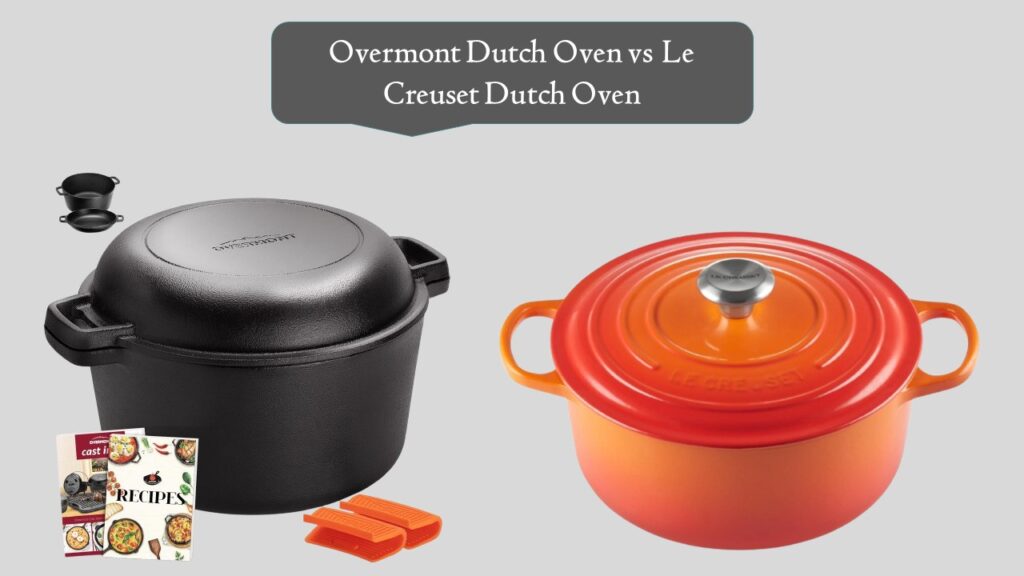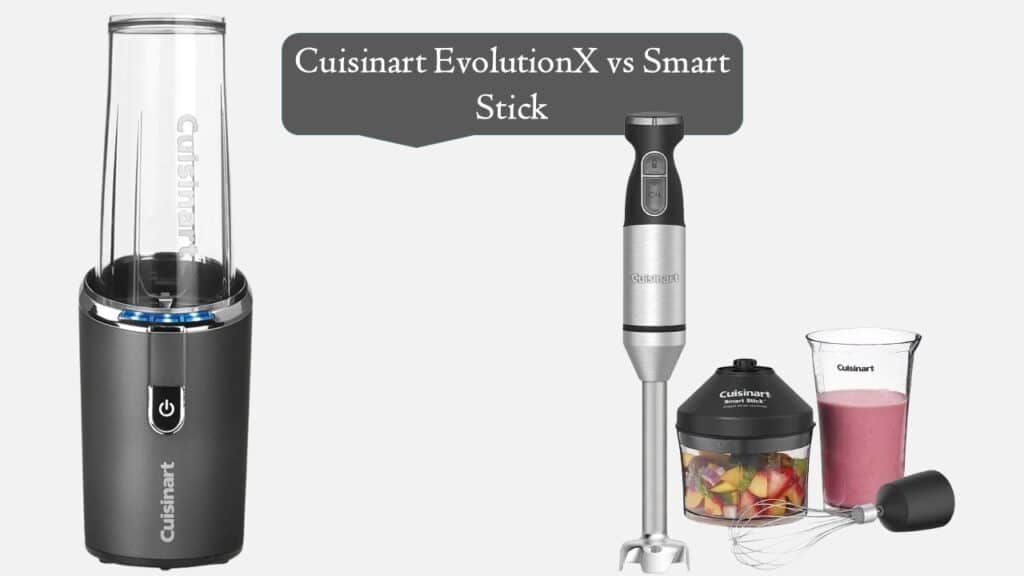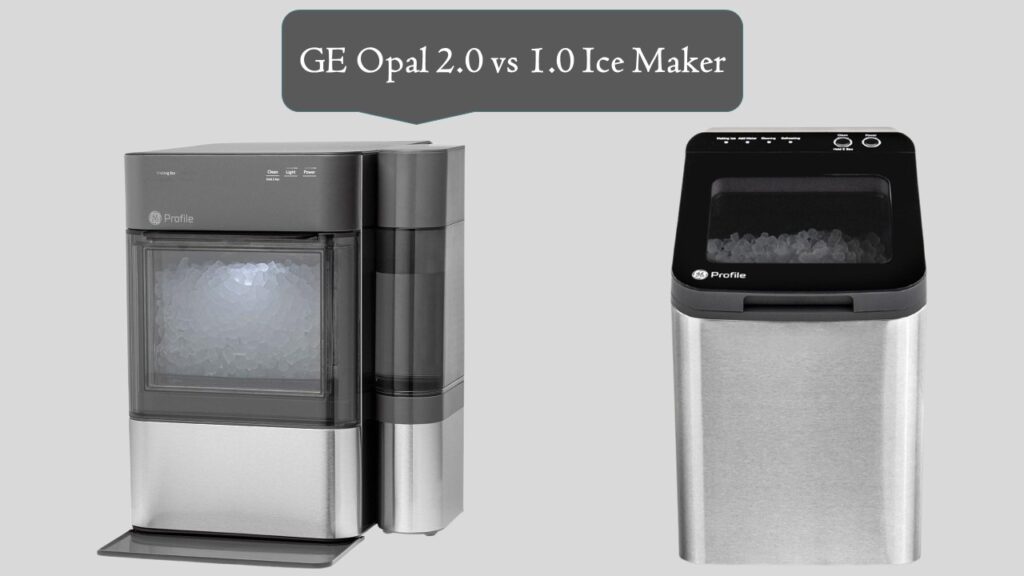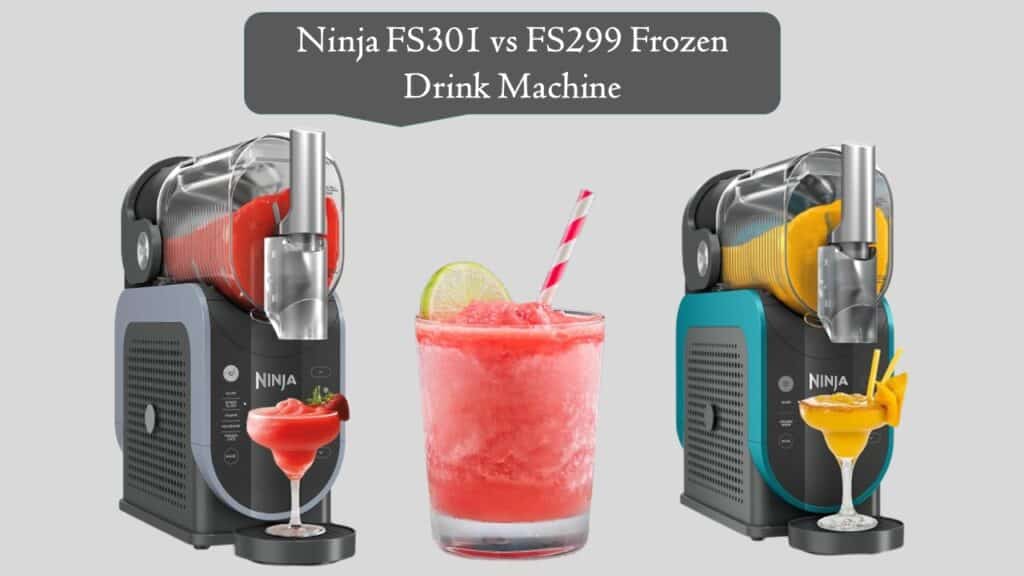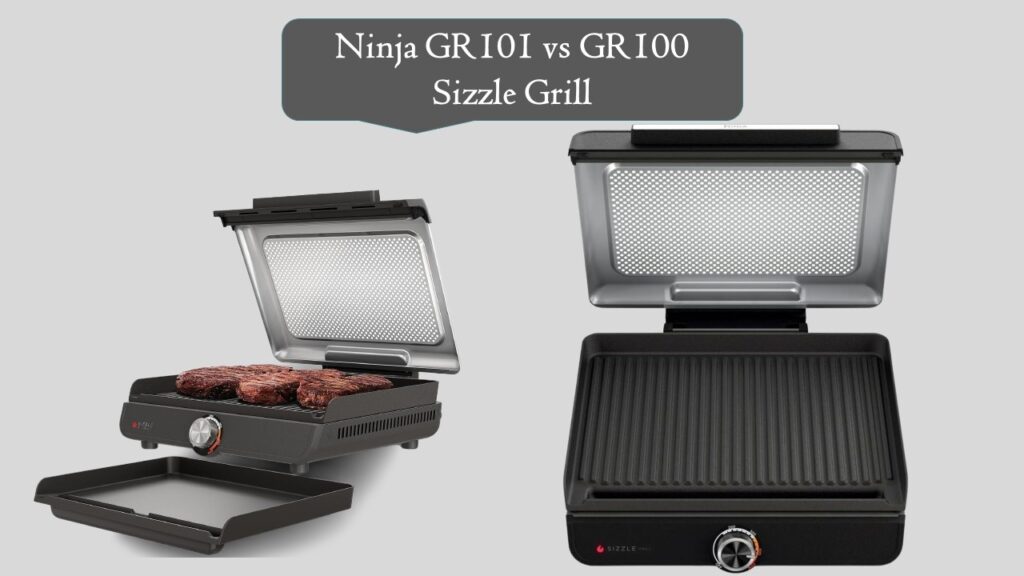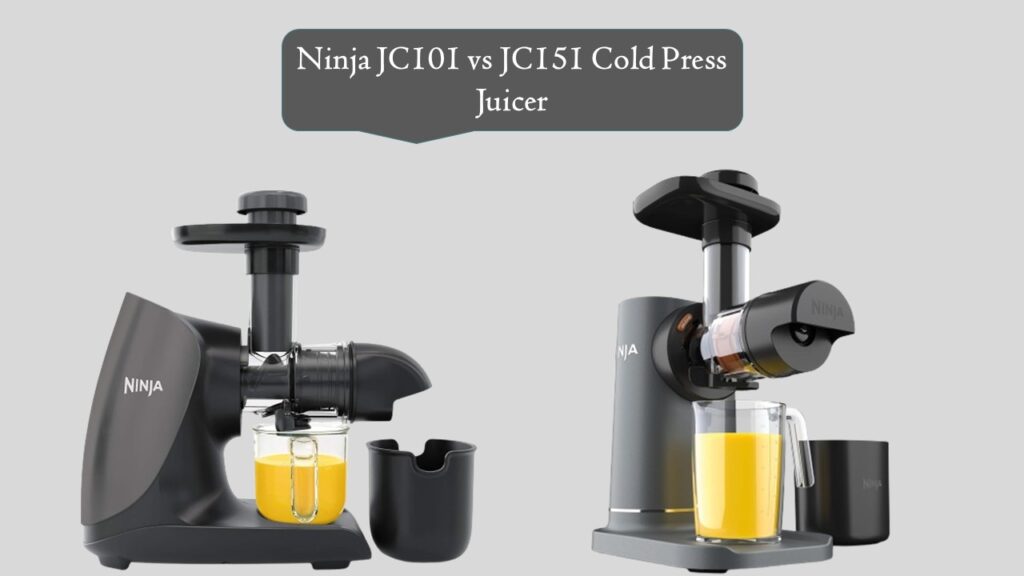The first time I placed a Dutch oven on the stove and watched it transform my ingredients into rich stews or crusty bread, I knew this was cookware magic. But over time I discovered that not all Dutch ovens are created equal. After several weeks of cooking with both an Overmont 2-in-1 pre-seasoned Dutch oven (5 qt) and a Le Creuset Signature enameled cast iron Dutch oven (5.5 qt, Flame color), I can say with confidence: each has strengths, trade-offs, and ideal use cases. Below is my take—warts and all—on Overmont Dutch oven vs Le Creuset and which might be better for your kitchen.
Key Difference Between Overmont Dutch Oven vs Le Creuset
At their core, both are cast iron pots—but their finishing, usability, and positioning diverge considerably.
- The Overmont model is pre-seasoned bare cast iron (no enamel), with a lid that also functions as a skillet. It’s built for versatility—stovetop, oven, grill, campfire—you name it.
- Le Creuset’s Dutch oven carries the classic enameled cast iron finish: no seasoning needed, smooth interior, lots of color options, and a reputation for elegant performance.
In short: Overmont leans toward rugged utility; Le Creuset leans toward refined, low-maintenance kitchen elegance.
- About 5 Quart Seasoned Cast Iron Double Dutch oven. Overmont Cast Iron Double Dutch Oven works overtime. Featuring a lid...
- Colorful exterior enamel is shock-resistant to prevent chipping and cracking
Comparison Table: Overmont Dutch Oven vs Le Creuset
| Feature | Overmont 2-in-1 Dutch Oven (5 qt) | Le Creuset Signature Dutch Oven (5.5 qt) |
| Material / Finish | Pre-seasoned cast iron (bare, no synthetic coatings) | Enameled cast iron, no seasoning needed |
| Capacity | 5 Quarts | 5.5 Quarts (≈ 5.3 L) |
| Lid / Dual Function | Lid doubles as skillet | Dome lid designed to lock in moisture |
| Compatibility | Induction, electric, grill, stove, oven, BBQ | All cooktops including induction; oven-safe to 500°F |
| Handles / Extras | Two handles + included silicone handle covers | Wide loop handles, stainless knob safe at high oven temps |
| Ease of Use | Requires seasoning upkeep, manual maintenance | Smooth enamel interior makes cooking & cleaning easier |
| Durability / Maintenance | More rugged to abuse (if maintained) | Enamel can chip if mishandled |
| Best For | Outdoor cooking, versatility, DIY cookware heat control | Indoors, presentation, low-maintenance, everyday use |
| Check Latest Price & Deals | Buy on Amazon | Buy on Amazon |
Detailed Comparative Review
Here’s how they felt in my hands and on my stove after weeks of real cooking.
Design and Build Quality
When I picked up the Overmont unit, I immediately noticed how raw and honest it looks—no gloss, no decoration, just raw cast iron. It feels heavy and purposeful. The fact that the lid doubles as a skillet is something I genuinely used: I’d simmer a stew in the pot, then flip the lid on another burner to crisp vegetables or fry bacon. That duality gives it tremendous flexibility.
The Le Creuset model, in contrast, feels like art in cookware form. The Flame color finish is radiant in my kitchen, and its smooth enamel edges and finish tell me it’s designed to be displayed, not stored away. The lid fits like a glove, and the loops are large enough for a gloved hand — something I particularly appreciated during roasting. Its refined exterior exudes confidence and longevity.
Design-wise, Overmont wins on rugged versatility; Le Creuset wins on visual appeal and polished craftsmanship.
- About 5 Quart Seasoned Cast Iron Double Dutch oven. Overmont Cast Iron Double Dutch Oven works overtime. Featuring a lid...
- Colorful exterior enamel is shock-resistant to prevent chipping and cracking
Ease of Use
Using the Overmont Dutch oven requires awareness. Even though it’s pre-seasoned, I had to maintain and occasionally re-season parts of the interior after heavy use. It’s forgiving in many ways, but it doesn’t shy away from the responsibilities of bare cast iron. The lid-as-skillet design means you need space and heat zones to make full use of it.
Le Creuset, by contrast, felt almost effortless. I never worried about seasoning or protecting the interior. Cooking sauces, baking bread, or making soups—all worked smoothly. The enamel surface allowed me to judge browning better thanks to the lighter interior tone, and cleaning up afterward was a breeze. For everyday use, it simply reduces friction.
If you prefer hands-on control and don’t mind upkeep, Overmont is great. If you want “set it and forget it,” Le Creuset is the easier option.
- About 5 Quart Seasoned Cast Iron Double Dutch oven. Overmont Cast Iron Double Dutch Oven works overtime. Featuring a lid...
Cooking Performance
Where the rubber meets the road—and flavor hits the fan—is in actual cooking.
With Overmont, I made pot roasts, no-knead bread, and stews over high heat and coals. This pot responded beautifully. Its thick walls and raw cast iron absorbed heat slowly, then held it, producing deep crusts and slow-release flavor. The lid-as-skillet comes in handy for toasting or crisping sides while the main dish simmers—something I used a few times when preparing two-phase meals.
With Le Creuset, the cooking performance felt smoother and “safer.” The heat distribution is excellent, and the tight-fitting lid circulates moisture well. I baked bread, braised lamb, and cooked tomato-based sauces without any scorching or sticking (provided I wasn’t using super-high heat without liquid). The lid’s dome shape helps steam condense and drip evenly back, keeping ingredients juicy.
In summary: for adventurous, high-heat techniques, Overmont handles it. For safe, consistent home-cooking, Le Creuset delivers predictably excellent results.
- Colorful exterior enamel is shock-resistant to prevent chipping and cracking
Cleaning and Maintenance
Overmont demands attention. After use, I’d rinse, dry thoroughly (sometimes in a warm oven), and apply a thin coat of oil to maintain the seasoning. Any neglected spots showed rust soon enough. But when cared for, the interior improves with age and develops a near-natural nonstick surface.
Le Creuset is far more forgiving. I could soak, use gentle scrubbers, or even dishwasher (though I opted not to regularly) without fear of stripping away surface quality. The enamel doesn’t rust, doesn’t require seasoning, and rarely shows wear if treated properly.
If ease of care is a priority, Le Creuset is the clear winner. If you enjoy the process of maintaining cast iron, Overmont gives you that experience.
- About 5 Quart Seasoned Cast Iron Double Dutch oven. Overmont Cast Iron Double Dutch Oven works overtime. Featuring a lid...
Durability and Longevity
Both have the potential to last for decades—but how that longevity looks differs.
Overmont’s raw cast iron is robust. As long as you don’t let it sit wet or unprotected, it resists warping, and the seasoning layer rebuilds itself over time. But misuse leads to rust or flaking if neglected.
Le Creuset’s enamel is more delicate to physical abuse. If dropped or handled roughly, chips may appear. But in regular use, the enamel resists stains, dulling, and corrosion. Le Creuset backs its products with strong warranty and reputation for durability.
So: Overmont wins ruggedness (if maintained); Le Creuset wins long-term safety for everyday kitchens.
Overmont 2-in-1 Dutch Oven
- About 5 Quart Seasoned Cast Iron Double Dutch oven. Overmont Cast Iron Double Dutch Oven works overtime. Featuring a lid...
Pros:
- Versatile: lid doubles as skillet
- RAW cast iron responsiveness for high-heat cooking
- Pre-seasoned and ready to use out of box
- Induction, grill, stovetop, oven compatible
- Rugged in the hands of someone who maintains it
Cons:
- Requires regular seasoning and care
- Interior vulnerable to rust if neglected
- No enamel protection
- Not as refined for serving or presentation
Le Creuset Signature Dutch Oven
- Colorful exterior enamel is shock-resistant to prevent chipping and cracking
Pros:
- No seasoning required
- Elegant finishes, many color options
- Easy cleaning & maintenance
- Excellent moisture circulation
- Strong reputation and warranty for longevity
Cons:
- Enamel can chip under rough handling
- More expensive
- Slightly less “character” for cast iron purists
Conclusion & My Recommendation
After using both extensively, I’ve formed a clear verdict—but with caveats.
If your cooking life includes outdoor use, fires, multitasking, and you enjoy maintaining your gear, then Overmont appeals strongly. Its dual-purpose lid, raw cast iron responsiveness, and ruggedness make it a compelling option for adventurous cooks.
But for those who want top-tier performance with minimal fuss, Le Creuset is the safer bet. It offers excellent heat control, dependable moisture retention, ease of use, and stunning aesthetics. It’s the kind of pot you’ll enjoy seeing out on your counter, day in and day out.
So in the contest of Overmont Dutch oven vs Le Creuset, I’d personally reach for Le Creuset for everyday home mastery—and keep a bare cast iron like Overmont more for side projects or heavy-duty cooking.

